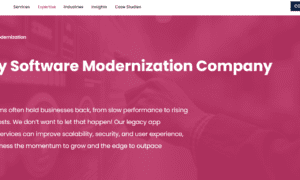You’ve likely encountered the terms “advisory” and “consulting,” but their distinction can be pivotal for business leaders. Despite their apparent similarities, these services approach challenges from markedly different angles.
I’ve seen firsthand how the right guidance can make or break a company’s success. Whether you’re looking to achieve long-term goals or solve specific problems, knowing when to bring in an advisor or a consultant is key.
So, let’s decode the buzzwords and uncover the true essence of advisory versus consulting. By the end of this journey, mastering these concepts will feel like second nature, empowering you to elevate your business strategies to new heights.
What Is Advisory?
Advisory refers to the provision of expert advice and guidance on various aspects of business, such as strategy, operations, finance, technology, and risk management. Advisory services are typically offered by professionals or firms with specialized knowledge and experience in a particular field.
Advisers work closely with clients to understand their specific challenges and objectives, offering tailored advice and solutions to help them achieve their goals. Unlike consultants, who often focus on specific projects or problems, advisers take a more holistic approach, providing ongoing support and guidance to help businesses navigate the complexities of the modern business world.
What Is Consulting?
Consultants are key players in providing businesses with tailored expertise and problem-solving strategies. They also have specialized expertise in optimizing landing pages such as high-converting landing page for coaches, accounting, etc for businesses. They analyze complex issues and offer personalized recommendations and implement effective solutions to maximize the performance of landing pages and drive business growth.
Consultants also facilitate change by implementing new processes and technologies. They serve as advisors to business leaders, offering objective advice, and often take on project management roles to ensure the successful implementation of their recommendations. In essence, consultants play a crucial role in helping businesses overcome challenges and achieve their goals.
Key Differences Between Advisory and Consulting
So, what are the key differences between advisory and consulting services? Let’s break it down.
-
Duration of Engagement
One of the biggest differences between advisory and consulting is the duration of the engagement. Advisers serve long-term positions and work with clients long-term to achieve overarching objectives. They become a part of the company’s leadership team and are invested in the long-term success of the business.
Consultants, work with clients on a short-term basis to solve specific, granular problems. Once the project is complete, they move on to the next client.
-
Types of Projects
The types of projects that advisers and consultants take on are also quite different.Advisers focus on the big picture, helping companies develop and execute long-term strategic goals. They’re all about helping businesses achieve long-term success. Consultants are brought in to solve specific problems. They take a deep dive into a particular issue, using their expertise to develop targeted solutions.
-
Engagement Duration
The work environment for advisers and consultants can also be quite different. Advisers often have a more predictable and stable work environment, as they work with the same company for a long period. Conversely, consultants may have to travel more frequently and work longer hours to meet project deadlines. Consulting requires more travel and longer hours to meet tight project deadlines.
-
Relationship With Clients
Finally, the relationship that advisers and consultants have with their clients is quite different. Advisers develop deep, long-term relationships with their clients. They become trusted partners and are invested in the long-term success of the business. Meanwhile, consultants have a more transactional relationship with their clients. They are brought in to solve a specific problem and then move on to the next project. A consultant is an outside expert brought in to solve a specific problem on a project basis.
Benefits of Advisory Services
So, why choose advisory? Here are a few key benefits. The biggest benefit of advisory services is that they help businesses achieve long-term success. Advisers become an integral part of the leadership team, providing strategic guidance and industry expertise to help the company grow and thrive. Advisory services focus on helping businesses accomplish overarching objectives and gain traction for long-term success. They take a holistic approach, looking at the big picture to develop strategies that will drive the business forward.
-
Providing Strategic Guidance
Advisers provide strategic guidance to help businesses navigate the complexities of today’s ever-changing landscape. They bring a wealth of experience and industry knowledge to the table, helping companies make informed decisions and stay ahead of the curve. Whether it’s developing a new business model, expanding into new markets, or navigating a crisis, advisers have the expertise to help businesses succeed.
-
Assisting With Business Challenges
Finally, advisory services assist businesses with ongoing challenges in areas like capability sourcing, customer engagement, revenue generation, and more. They provide tailored guidance and support to help companies overcome obstacles and achieve their goals. With an adviser by your side, you have a trusted partner to help you navigate the ups and downs of running a business.
Benefits of Consulting Services
Consultants are problem-solvers. They have the specialized expertise to tackle those granular challenges that are holding your business back.
-
Providing specialized expertise
Every consultant possesses deep knowledge in their respective discipline, whether it’s marketing, operations, finance, or something else entirely. When you hire a consultant, you gain access to that expertise without the need to bring on a full-time employee. This dynamic is frequently observed with different clients. Some may not have the budget to hire a top-tier CFO, but they can engage a financial consultant for a few months to overhaul their financial systems and set them up for success.
-
Offering a fresh perspective
Consultants offer a fresh perspective by providing new insights, innovative ideas, and expert opinions that can help businesses see their challenges and opportunities in a new light. They bring external knowledge and experiences, allowing them to offer unique solutions tailored to the specific needs of the organization. This fresh perspective can lead to improved decision-making, increased efficiency, and better outcomes for the business.
When to Choose Advisory or Consulting
So, how do you know whether you need an advisor or a consultant? It all comes down to your specific business needs and goals.
-
Factors to Consider
There are a few key factors to consider when deciding between advisory and consulting services:
- The nature of your challenges (strategic vs. operational)
- The timeline of your needs (long-term vs. short-term)
- Your budget and resources
- The level of expertise required
If you’re facing high-level strategic challenges and need ongoing guidance to navigate complex issues, an advisory engagement might be the way to go. Advisers can serve in long-term positions and work closely with your C-level executives to shape the direction of your business. On the other hand, if you have specific operational problems that need to be solved on a shorter timeline, consulting is likely a better fit. Consultants can dive deep into granular issues and provide targeted solutions to help you overcome obstacles quickly.
However, if you find yourself torn between the strategic guidance of an advisor or the specialized expertise of a consultant. It might be worth considering the assurance and accuracy that an auditor can provide. Before you start looking for advisors, consultants or auditors, it’s important to take a hard look at your business needs and goals. What are the biggest challenges you’re facing right now? What are your long-term objectives? Where do you need the most help? Answering these questions will help you make decisions about which professional service is right for your situation.
-
Determining the Scope of Work
Once you have a clear understanding of your needs, you can start to define the scope of work for your engagement. What specific problems do you need to solve? What outcomes are you hoping to achieve? What timeline are you working with? Having a well-defined scope of work will help you find the right advisor or consultant for your needs and ensure that everyone is on the same page from the start.
Conclusion
Advisory and consulting are two sides of the same coin, yet each has its unique power to drive your business forward. Advisors are the long-term partners who help you navigate the big picture and achieve those lofty goals. Consultants? When specific challenges arise, they’re the problem-solving pros you call in for targeted expertise.
The key is knowing when to tap into each one. Whether chasing ambitious targets or troubleshooting specific challenges, having the right support in your corner can make all the difference.
So before you make that call, take a step back and assess what your business really needs. Is it high-level guidance to steer you toward a brighter future? Or laser-focused know-how to conquer the obstacles in your path? Once you’ve got that figured out, you’ll be ready to find the perfect advisory or consulting partner to help you crush your goals and take your company to the next level.



































